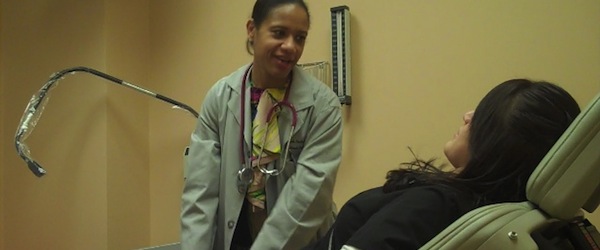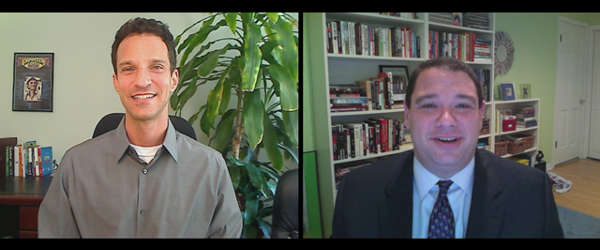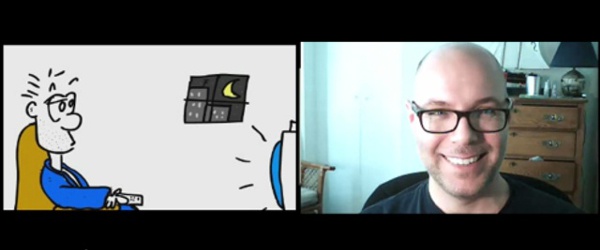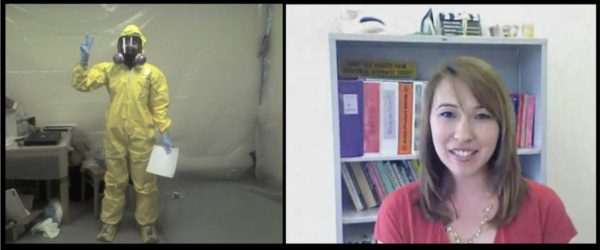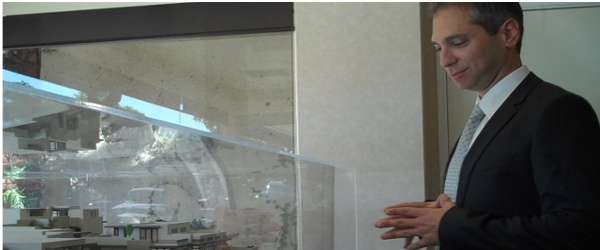College Recruiting Jobs
College recruiting jobs can be a great way to spend your 20s, according to today’s guest, college recruiter Paul Angone. Paul tells us that college recruiter jobs are a fun way to stay involved with your school while developing a wide variety of skills in your early adult years.
SNEAK PEEK (Full Episode below)
|
Today’s Guest
 College Recruiter: Paul Angone
College Recruiter: Paul Angone
Grad School: Azusa Pacific University in Azusa, CA
Grad Degree: Master’s in Organizational Leadership
College: Westmont College in Santa Barbara, CA
College Major: Communication Studies
High School: Arapahoe High School in Littleton, CO
First Job Ever: Towel boy in an athletic center
Worst Job Ever: Washing cars at a gas station
College Recruiting Jobs
Paul tells us that college recruiting jobs require a lot of travel in order to attend college fairs and meet with high school students and their families. It can get lonely on the road but it’s also like summer camp because you’re surrounded by young adults with college recruiter jobs for other universities. Paul actually met his wife on the road when they were both recruiting for different schools! Paul says it’s important to be comfortable with public speaking if you’re considering going for college recruiting jobs. After all, you’ll be working in a sales and marketing capacity as you travel around to speak to families and represent a school. To get college recruiter jobs, Paul suggests meeting with the admissions office of your own college. If they aren’t hiring, then meet with similar, competitor schools so that you can show that you would be able to relate to and sell a similar experience. If you’re still in school, you can break in to college recruiting jobs by becoming a tour guide or intern for your college admissions office.
FULL EPISODE (#40)
For our Audio Podcast: Careers Out There on iTunes
TRANSCRIPT OF TODAY’S INTERVIEW
How High School Students Can Improve Their College Admissions Odds 2:42-5:29
Traveling for College Recruiter Jobs 5:29-8:05
Who Should Pursue College Recruiting Jobs 8:05-10:12
Compensation For College Recruiting Jobs 10:12-11:22
Breaking In To College Recruiting Jobs 11:22-14:44
Keys To Success For College Recruiter Jobs 14:44-16:38
Careers Out There Host Marc Luber: Hey everyone – on today’s episode of Careers Out There we’re gonna explore careers in college recruitment. And we’re also gonna learn how to talk to a college recruiter if you’re in high school and you want to impress them and increase your odds of getting into that school.
Our guest today is Paul Angone. He’s a college recruiter for some grad school programs at a university near Los Angeles. He also runs the website All Groan Up, which is a site that discusses the pleasures and pains of growing up in those years after college.
In case you’re new to Careers Out There, in every episode we explore a career path by talking to a real professional who does that kind of work. They tell us what it’s like, how to break in and then how to succeed once you’re there – all to help you decide if it’s the kind of path you want to pursue. I’m your host, Marc Luber, and I really think you’re gonna like meeting Paul. He’s a good guy, so stick around!
[theme song] OK, we’re back! Paul, welcome to Careers Out There.
Paul Angone: Hey! It’s great to be here.
Luber: Thanks for being here. So Paul and I met at the Jenny Blake event when she was promoting her book, right? When she was here for the Life After College speaking event?
Paul Angone: Yup!
Luber: Jenny was recently a guest on the show and now I’m glad to have Paul here. So as I was saying, Paul is a college recruiter, but he also has the site All Groan Up and we’re gonna talk all about All Groan Up and the book he’s got coming out this coming spring. But first, let’s learn about what it’s like to be a college recruiter. Paul, I’ve never interacted with a college recruiter before. I went to the University of Michigan, huge school.
Paul Angone: Sure
[WHAT DO COLLEGE RECRUITERS DO starts at 1:20 ]
Luber: I wasn’t recruited there, I just went there. What does a college recruiter do?
Paul Angone: Basically a college recruiter is someone that will travel around for months and will be out there just talking about their school. Going to high schools, going to college fairs, trying to connect with students and basically trying to drum up a lot of interest for students to apply to their schools.
So for pretty much the entire Fall, these recruiters are out. So I worked in California and I’d be in Colorado, Washington, Oregon, San Diego, Texas….You’re just a traveling salesman in a way, but you’re talking about school. You’re talking about your school and if it’s the right fit. And you’re trying to get students to come back and visit you.
So you’re going out there and meeting those students and then you’re coming back and when they’re applying, you’re now the one that’s starting to read applications. And a lot of the times, especially at smaller schools, but even a medium-sized school, that recruiter might be the person making the decision on the college application.
And so you really switch from going out and being out on the road to being in your office and reading applications, interviewing students and then making a decision whether or not they’re admitted.
[HOW HIGH SCHOOL STUDENTS CAN IMPROVE THEIR COLLEGE ADMISSIONS ODDS starts at 2:42]
Luber: So then how can a student impress upon you so that they increase the chances of actually getting in to the school?
Paul Angone: Gosh, students have a great opportunity at really putting their name and their application above the rest. Especially, it’s so competitive nowadays. So many students are applying to these schools and they can only admit so many students.
And so a way to really put yourself above the rest of the applicants is going and connecting with that recruiter because, like I said, a lot of time they want the recruiter that’s in a specific area reading all the applications from that area itself. So it’s really like a job interview. You get to meet the person that’s gonna interview you and make your decision. They’re almost like coming to your house and they’re wanting to meet you. And you get to make an impression.
And so I think a lot of students, they don’t necessarily realize that so when a school comes and visits them they don’t even show up to the presentation and if they do they just sit there and listen and then they leave with a group of their friends. But you’d better believe the students that would come up to me, shake my hand, introduce themselves, look me in the eye, talk to me…
Luber: They’ll stand out!
Paul Angone: I would remember their name!
Luber: Right!
Paul Angone: And then when they apply I would be like “oh”! And gosh, if you send a thank you note or even an email saying, “hey I met you at the school, thanks, you did such a good job,” you know you butter up the recruiter a little bit. You know, you’re gonna stand out because now you’re a face behind the name. And that’s always key. You’re a real person now.
Instead of just being another name, another essay, because they read so many, you’re a real person! You’re a face and you’re a story. And it’s much harder to say “no” to a real person than it is saying “no” to a piece of paper. And so students have that great opportunity and it’s just right there waiting for them.
Luber: Wow! So what’s a typical conversation that you would have with a student?
Paul Angone: Well typically you don’t really have that great of conversations because students, I think, are a little nervous to come up to you. They’re fearful, they’re with their friends, they don’t want to look like, “I don’t want to be the dork going up and talking to the college recruiter”, you know. They’re trying to play it cool.
But when a student would come up to you, the conversations you’re having is just “hey what do you like, what are you interested in”, you know. “What are you passionate about?” You’re just trying to get to know them. Because as a recruiter that’s really what you’re trying to do. You’re just trying to make a connection and get to know the students.
So it’s really laid back and most recruiters, I mean, they’re in their early 20s, mid-20s. These are recent young professionals and they’re fun to talk to. They’re very charismatic, outgoing, and it’s really just a casual conversation but one that could really make a difference later on for the students especially.
[TRAVELING FOR COLLEGE RECRUITER JOBS starts at 5:29]
Luber: Interesting. And so when you’re first traveling to meet all these people, where is it that you’re going and speaking?
Paul Angone: Yeah, so for about a month, all of August as a college recruiter, you are setting up an entire schedule where you’re calling high school counselors so the school counselor, and you’re setting up a time to come visit. You’re setting up those times around college fairs because there’s college fair circuits that will go on in different states.
So let’s say it’s October. There’s a week where there’ll be 6 college fairs within Colorado. And those college fairs will be spaced out in different cities around Colorado, so basically have this band of recruiters all traveling around to go to those fairs at night. That’s that huge room, all the colleges are there and families will come in and you’ll go around from table to table and meet and talk to that school to see if it’s a good fit, get a brochure, that kind of thing.
But during the day, you have to fill your time and you’re wanting to make it useful so that’s why you’re scheduling high school visits within that city. And typically you’re going to high schools where you’ve received students from in the past.
And so if it’s a school that you got a bunch of students before, you want to go back to that school because you know there’s gonna be a lot more students that have heard about the school from their friends. So you’re going to high schools and college fairs. That’s really what your days are looking like on the road.
Luber: So since you’re all traveling around to the same places, do you get to know the recruiters from other schools? You know, like, “ah – there’s that one again – I gotta meet up with that guy!”
Paul Angone: Oh most definitely. It’s your family. You don’t know anybody else. Typically you’ve just come from college with all your friends and now you’re on the road staying in some random hotel in Fort Worth, Texas and it’s like who are you gonna go hang out with? And it can get lonely! I think anybody that travels a lot you kind of feel that.
So it’s really nice that you have this group of really like-minded, same age, same kind of interest people that you’re all traveling around. So it’s not a competitive environment at all. You’re not competing for students. You’re really like a family.
And after a fair, a lot of the time, let’s see how a college fair gets done at 9. You’re going out with a group afterwards to go grab a bite to eat, to travel around and connect. So actually, I met my wife as a recruiter for a competing school! So that’s how we met – at a conference!
Luber! Wow! That’s great! That’s funny!
Paul Angone: Yeah. As admissions counselors. It’s like camp – like this camp syndrome – where you’re all traveling around together and you get to know each other really well and who knows – maybe you find your spouse like I did!
[WHO SHOULD PURSUE COLLEGE RECRUITING JOBS starts at 8:05]
Luber: Yeah. Yeah! So from the people who are watching, who would you say, “you guys should really check out this career”? What are the things you would say fit people? Obviously, you have to be willing to travel. You’ve gotta be the kind of person who likes traveling.
Paul Angone: Yeah, you’ve gotta be willing to travel. Public speaking is a big part of it. So I think for myself, I was a communication studies major, so it was a good fit. You don’t have to be this extreme extrovert. You don’t have to be this amazing public speaker. But you have to be OK with getting in front of groups. It could be as small as 2 students or it could be as big as a room full of thousands of families. You know, for Preview Day or something like that and you’re up talking. So I think that’s 1.
I think somebody, it becomes a really good fit, especially at your own school if you really liked your experience at your school, because a lot of times schools want to hire their alumni to be admissions counselors for that school because you have just a plethora of stories to tell. You’re not just talking about classes in this abstract way. You’re talking about the experience in your junior class when you had that professor and you guys went out to lunch and he mentored you, that kind of thing. So they really do like alumni because they know that you can go to a certain depth with that.
And then I think it’s for people that want to get some experience in things like marketing and advertising and recruiting and some skills that you can then take and go to a lot of different places with.
But you really will touch on a lot of different pieces that you can then leverage and start doing projects more and more let’s say on the marketing side, that you can then leverage if you wanted to get out of education at some point or to just get more of a marketing role within education. So you really get a good base of skills. It’s a really good profession to learn a lot of those base skills.
Luber: That’s great! Any job that gives you a lot of opportunity to grow multiple skill sets is a great job.
Paul Angone: Yeah! Exactly.
[COMPENSATION FOR COLLEGE RECRUITING JOBS starts at 10:12]
Luber: Because then like you say you could take it anywhere and go in any direction that may interest you later in life. That’s really important. What about pay? Is this the kind of job where you’re paid a salary? Or are you paid like a commission based on how many students you get to come to the school?
Paul Angone: Yeah, that’s a great question! Typically it’s a salary. You’re just paid straight salary. It has nothing to do with how many students you get to come, that kind of thing. Now some school, more on the for profit side, so schools, maybe a school like University of Phoenix or a different school, they did have a different model in the past where they would – it would be kind of a commission or having certain goals and monetary goals. But I think that’s gonna really – I think that’s already changed and started to change to where it’s gonna be just straight salary.
Luber: The government’s cracking down.
Paul Angone: There’s some ethical dilemmas there – especially if you’re the one reading that application from a student that you possibly could receive something from if they came. There’s kind of an ethical dilemma there. So I think they’ve really shifted away from that to where you’re just salary. You have goals that you want to hit but you’re not gonna be compensated for that. You’re just doing your job as best you can.
[BREAKING IN TO COLLEGE RECRUITING JOBS starts at 11:22]
Luber: Right. Makes perfect sense. What about if someone wants to break in? If someone’s watching and they’re like, “I want to do what Paul does! This sounds great!” What would you tell them?
Paul Angone: You know, I would say first start with your own school. I would say just contact maybe someone that you’ve met and maybe you’re still in college and especially if you’re in college, I would definitely go into the admissions office and try to get an internship or become a tour guide or become one of the counselors that’s on the phone calling students.
Definitely when you’re in college, that’s the best time. That’s how I did it. I started as a tour guide – you know, one of those student workers that would take families around and show them the campus. That’s a great way to make that instant connection.
But let’s say you’re out of college. I would say just go back – go back to your school and go to the admissions office and meet – try to get an interview or go and meet one of the counselors and say, “I’m really intrigued about this job.” If your school is not hiring, I’d start looking at similar competitor schools.
So let’s say you went to a smaller school, I would go o those other smaller schools in the region and say “hey, I went to this other school, it’s very similar, so I know what it’s like to be a student in this kind of school” or “I went to this big state school, I know what it’s like, so I can easily relate that experience at this school.” I would just drop by and try to meet the right people because you can send in an application, you can look for the openings on web sites, but it’s always great again, obviously, to put a face to a name.
Luber: Yeah, for sure. And now there’s also grad school recruiting, not just undergrad recruiting. So that expands the pool of places people could look at. You’ve done both! Tell us what’s the difference between the 2?
Paul Angone: You know, grad school is really different, I think in a lot of ways, because mainly you’re not recruiting as much. At least where I work, you’re not recruiting as much across the whole nation. You’re really recruiting at a very domestic level.
So you’re recruiting, let’s say, I work in California, so I’m mainly just in Southern California. And so you might go to fairs but they’re at universities just around the area. So you’re not going and doing presentations as much in schools, you’re mainly just going to fairs. So you’re in the office a lot more and you’re not traveling around as much. And then you’re not really gonna be the one making the decisions as well. I mean, that’s gonna be going to specific departments.
You know, if a student’s applying to be a marriage and family therapist, obviously as a grad enrollment counselor, you don’t have the experience to make that decision. It’s very specialized now. So that program director of marriage and family therapy is gonna be making the decision.
Luber: OK.
Paul Angone: So you become a lot more specialized, I’d say. And you’re working with more of an adult population now so you’re not doing as “rah rah” of a presentation and you’re not talking about this life changing experience of living on campus and taking classes, that kind of thing. You’re more just talking about “hey, this is how you can get this degree done, it’s gonna take you this amount of time”. It’s more black and white, I would say.
Luber: OK.
Paul Angone: So there’s the pros and cons with that and I think it fits people differently. But I know for grad enrollment counselors a lot of the time they’re also looking for people who have a master’s degree or are pursuing a master’s degree because they want you to speak about it from your experience as well.
[KEYS TO SUCCESS FOR COLLEGE RECRUITER JOBS starts at 14:44]
Luber: Yeah, that makes sense. This sounds really good! Tell us this – a few bullet point keys to success for those people who do break in and get that job right now, to get started.
Paul Angone: Success once you have that job?
Luber: Yup.
Paul Angone: I would say, first of all for a grad enrollment counselor or an undergrad enrollment counselor?
Luber: Either one.
Paul Angone: Any of them?
Luber: Yup.
Paul Angone: I would say first of all that you’re gonna enter into a great network of professionals. And whenever you’re at fairs or you’re at conferences, you’ll go and meet a lot of your fellow professionals at other schools. I would say make as many connections as you can. Talk to people and exchange business cards and start building up that network right away. Because these are people that 1: might lead to a job opportunity down the road at a different school. They might just be a great resource for you if you have questions, like “hey how do you effectively recruit” or “how do you do these things”?
Basically it’s a great family to enter into. So I’d say start making those connections right away because those will be a very important part of you growing in that career, making those kind of connections.
And then I would say when you start doing the job you’re gonna be asked to do a lot of different things and I would say start trying to pinpoint that area that you really are drawn to. So is it the more policies, procedures side, is it the recruiting aspect, is it the marketing, you know, thinking of creative marketing campaigns.
And I would say start getting projects more and more within that specialty because you want to start honing in because you’ll be so broad, I think you’ll really want to start honing in so you can start growing in that area so that then when a school’s looking for an assistant director of mark3eting you can say “well I’ve done 2 years of marketing, here’s all the things that I’ve done.” So you can leverage that a lot easier.
Luber: That’s great. Great advice! So tell us this – what’s happening at All Groan Up dot com?
Paul Angone: Sure! Yeah, that’s the website I have started to basically help people that are going through this 20-something transition of “what now?” that aren’t quite – aren’t really feeling like you’re growing up any more and you don’t really feel like you’re grown up – you feel like you’re somewhere in between. And I know I felt kind of, this kind of awkward limbo stage where you feel like well it should be just more black and white, like somehow you cross a threshold of “I’m now an adult” or “I now have my career” or “I have my marriage and a kid and a white picket fence, I have it figured out.” And I think in today’s day and age, it doesn’t really work like that any more! It’s such a process.
It’s been hard for a lot of people to even find a career that really fits them. You know, the 20s is really a process I think of almost figuring out more of what you DON’T want to do than it is sometimes figuring out what you want to do.
Relationships, you know, we’re getting married at an older and older age, we’re having kids at an older and older age, we’re being asked to go do graduate school, get a master’s degree, get a doctorate degree to be competitive, and so it’s really delaying this process of becoming I think just feeling like you’ve become an adult. You feel like you have it figured out.
So that’s really what the website’s about. It’s about that conversation of career, relationships, faith, what it means to be an adult, this conversation going on online as a resource for really 20-somethings that are going through that process.
Luber: Awesome! And then what about your book? What’s happening with the book? Are You My Life, right? That’s the title?
Paul Angone: Yes! It’s called Are You My Life, Searching For Self, Faith and a Freaking Job. It’s my story, really, from college graduation on as I’m going through that process of “now what”. It’s my funny, sarcastic, angry at times but in the end hopeful and encouraging as far as this is kind of the process I went through in a couple years span of time as I started asking those questions of, “OK, now what do I do?”
Because I think you go through college and everything is so linear. You just keep taking these steps. You know, “I’m gonna go to college and I’m gonna find a major and I’m gonna do an internship.” You just keep taking these steps and then you graduate and it’s like you just entered this whole world where there’s no more steps, there’s no more syllabus, there’s no textbook, there’s no professor telling you this is how you have to do it to be successful.
And so it’s this process of, “OK, how do I navigate the world now with these skills that I’ve gained, how do I plug that in to the next 10 years, 20 years, my life?” And so that’s what my book’s about is wrestling with that process because again, it’s not as straight forward I think as I thought it would be or as kind of people make it sound like it will be.
Luber: Right.
Paul Angone: So I’m hoping my book will really identify with people who are going through that stage and really wrestling with the “now what” of their 20s.
Luber: That’s great. Good luck with it!
Paul Angone: Sure!
Luber: It comes out this Spring? That’s when it’s available?
Paul: Yup, that’s right!
Luber: And as a taste, people could get a taste of it now at your site, is that right?
Paul Angone: Yup, they could go to All Groan Up dot com and there’s a tab at the top that says “book” and you can download a chapter to get a feel for it and just check out the website and connect with me there.
Luber: Excellent! You guys, please feedback, questions and comments in the Comments section below the video at Careers Out There dot com. Paul, thanks again for joining us!
Paul Angone: Hey, thanks Marc! Great to be here.
Luber: Excellent. You guys could find Paul at All Groan Up dot com. To see how to spell it, just look at the chalk board right behind him! You can find episodes of Careers Out There on YouTube, BlipTV, iTunes and of course at Careers Out There dot com. Thanks again for watching everybody. I’m Marc Luber and look forward to seeing you again soon. Take care.
©2011 Careers Out There
POSTS YOU MIGHT LIKE
The Career Workout with Coach Jenny Blake
How Do I Find the Right Career?
Choosing the Right College



